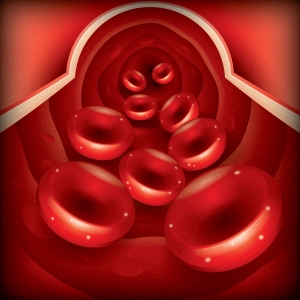Magnesium for blood clots is essential. Magnesium prevents abnormal clotting. Calcium tends to promote blood clotting. Magnesium in the blood dissolves calcium avoiding the formation of clots.
Magnesium is a vital mineral that participates in hundreds of enzyme functions, interacts with calcium, helps relax tissues, and helps calcium get into neurons and get back. These mentioned features are a few of many cases where magnesium is an essential and essential mineral. Without magnesium, the body starts to rebel. Many problems occur. Do you need a migraine or depression? How about muscle cramps?
Magnesium for blood clots is essential. Magnesium prevents abnormal clotting. Calcium tends to promote blood clotting. Magnesium in the blood dissolves calcium, avoiding the formation of clots.
I remember times when I tried to pinch my leg after sleep because the muscles were tight and painful.
Magnesium for blood clots is vital because abnormal clotting can cause problems such as angina or heart attacks. Who needs them?
How does it work?
Magnesium participates in dissolving calcium in the blood. In this way, calcium can not form more blood clots as supposed to. Blood clotting is a vital function, but it does not serve the purpose if abnormal clotting occurs. This purpose is when bleeding occurs; blood starts clotting. We do not bleed to death to the point when we need a blood transfusion. It is a normal healing process.
However, when there is too much calcium in the blood, this element influences the formation of too many blood clots. According to Dr. Carolyn Dean M.D., N.D., calcium does not dissolve in the blood.

Magnesium helps calcium to dissolve in the blood.
How about chemicals?
Chemicals help make blood thinner. Unfortunately, some of the substances cause platelet aggregation. How does it sound? These platelets are activated by calcium. The chemicals stop platelets from functioning. It is no fun because platelets are part of blood and have to perform functions.
Platelets have another name: thrombocytes. These guys participate in blood clotting. I wonder if platelets do not work, they can not perform the primary function. This feature is to prevent us from bleeding.
Any suggestions on how to solve this problem?
Dr. Carolyn Dean offers a simple solution. Magnesium for blood clots works as a mineral that does not let calcium form too many blood clots. Magnesium prevents abnormal clotting.
Everything in the body is balanced. If calcium overcomes limits in the blood, clotting becomes abnormal, especially when magnesium is deficient.
Dr. Carolyn Dean offers to cut back on calcium supplements and balance the extra calcium with magnesium.
Conclusion
Magnesium is a vital and efficient mineral that has many benefits. Sorry, no side effects. I talk about pico-ionic, absorbed at the cellular lever ReMag. Other forms of magnesium have different levels of laxative results.
Magnesium will prevent blood clotting if this mineral is in the body. I read that chemicals have side effects. Some of them have 80 side effects. I would question myself about the ability to choose between vital minerals and the compound with 80 side effects.
Magnesium for blood clots is vital and needed as the mineral which prevents excessive blood clotting.
If you would like to read more about ReMag, you can find the information here. Do you have experience with minerals and with magnesium particularly? I would be glad to hear from you.